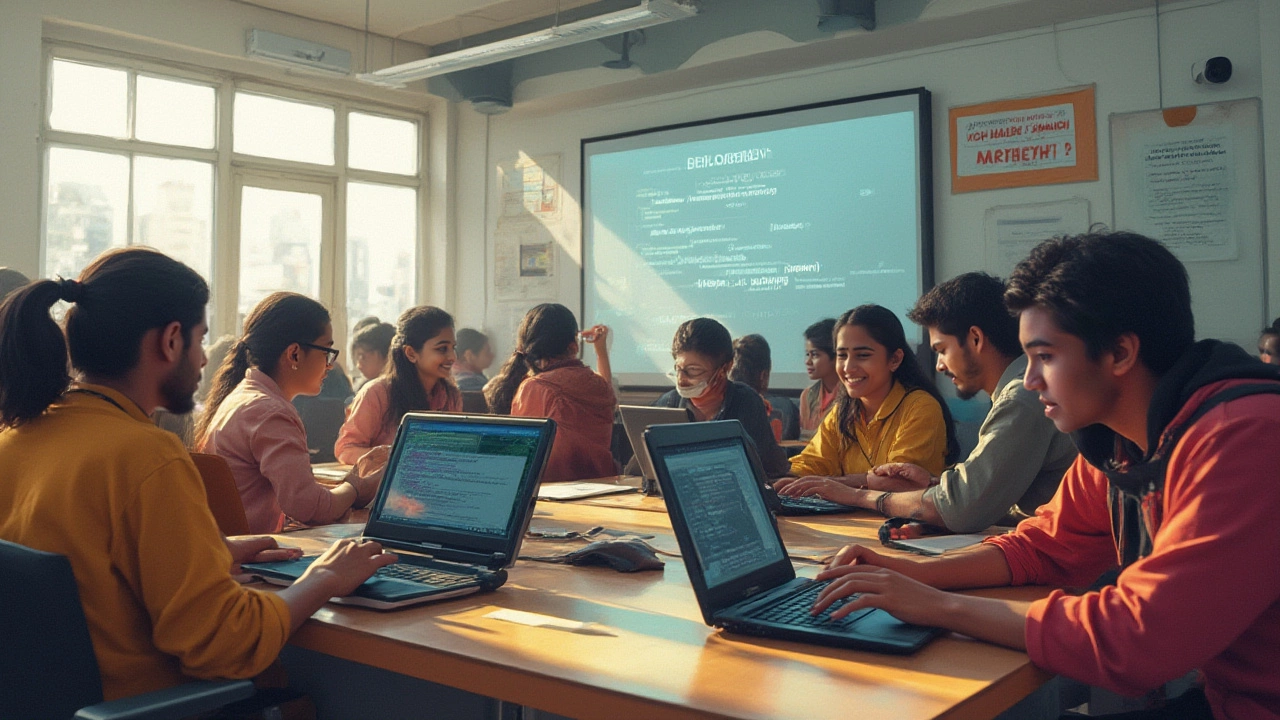Six months. Two years. Twelve weeks. Get this—there’s no single answer to how long coding school takes. Some students land their first tech job in under four months; others stick with classes for years before feeling ready. The idea that all coding schools are one-and-done programs is a myth. Your journey could be a quick sprint, a steady jog, or the world’s most determined crawl. It all depends on your background, goals, and the path you choose.
Understanding the Different Types of Coding Schools
The first thing that trips everyone up? The term “coding school” covers a lot of ground. You’ll see names thrown around like bootcamp, diploma, certificate course, even full-blown degrees. None of these are the same. Let’s break this down. Traditional university degrees in software engineering or computer science usually take three to four years full-time in New Zealand, sometimes more if you study part-time or combine it with work. These are marathon programs—and while they’re packed with theory, not everyone’s got that much time or money.
Now, coding bootcamps are the rebels of the group. They compress everything—web development, front-end basics, Python, JavaScript, you name it—into tight, focused packages. A typical coding bootcamp is about 12 to 24 weeks full-time, or up to a year part-time. Some offer self-paced online versions, where you fit studies around your life, but even those have “suggested” timelines. You’ll see ads bragging “Become a developer in 3 months!” They’re not lying, but the pace is intense. Expect 40 to 60 hours of classwork per week, with late-night projects on top.
There’s also a middle ground: certificate courses or shorter diplomas, either in person or online. These can last from a few months up to a year, depending on depth. Many New Zealand technical institutes, like Unitec or AUT, have excellent 6-month to 1-year programs focused on practical skills. They’re amazing if you want a solid base without the price tag or time commitment of a university degree.
The Numbers: How Long Coding Schools Really Take
You’re probably wondering, “What’s the average?” While programs shift every year, here are some real numbers you can trust from top schools and platforms as of 2025:
| Type of Program | Typical Duration |
|---|---|
| University (Full-Time Degree) | 3 to 4 years |
| Bootcamp (Full-Time) | 12 to 24 weeks |
| Bootcamp (Part-Time) | 20 to 48 weeks |
| Certificate/Diploma | 3 months to 1 year |
| Self-Paced Online Course | About 100-1000 hours total |
| Corporate Training Program | 8 to 24 weeks |
Several Auckland bootcamps reported their average student finishes a full-stack development course in 16 weeks, but only if they stick to a strict 40-hour weekly pace. For part-timers, it stretches closer to 9 months—sometimes more if life gets in the way. According to a 2024 study by Course Report, 79% of coding bootcamp grads finished their programs within the advertised timeframe, but those juggling jobs or families tended to take longer. And here’s something practical—online coding schools like Codecademy or Udemy let you move at your own rhythm, but on average, students reach “job-ready” skills after about 8 to 12 months if studying in their spare time.
Let’s not ignore the drop-off rate. Coding can be tough, and many learners pause or restart a few times before crossing the finish line. If you’re working, have kids, or just need flexibility, plan to give yourself more runway. It’s not uncommon for self-taught coders to spend two years mastering skills with free online resources before landing their first tech job.

Which Path is Right for You?
Here’s where it gets personal. If you have zero tech experience and want a sure thing, a university degree offers the most depth, but you’re in it for the long haul. Love to learn fast and hands-on? A coding bootcamp can rocket you into an entry-level developer role in a few months—if you can survive the daily grind. For those somewhere in the middle, certificate programs or self-paced online courses bridge the gap. These let you dip your toes in before going all in, or pick up skills for a specific goal (like building a website or automating spreadsheets at work).
Your learning style is going to dictate your success far more than any advertised timeline. Do you love gathering with a group, sharing snacks (even if they’re on Zoom) and tackling bugs together? Choose instructor-led, cohort-based courses. Prefer solo sprints at midnight? Give self-paced options a try. One sneaky tip: a lot of New Zealand employers are looking less at where you learned, and more at what you can actually build. A polished portfolio trumps a diploma any day.
Money matters too. Bootcamps cost between NZD$8,000 and $18,000 in 2025, but many offer financing, scholarships, and sometimes even a job guarantee or money-back promise if you don’t land employment. Online courses can be as cheap as NZD$25 for a Udemy intro, or hundreds for something in-depth from Coursera—with no strict end-date, which works if you need total flexibility. Traditional degrees are costly but may offer low-interest student loans through StudyLink. Before signing up, check the fine print: some “short” bootcamps have mandatory prework or placement periods that add time, while “fast” online courses sometimes gloss over crucial job-hunting skills.
Tips for Picking—and Finishing—the Right Coding School
Let’s talk brass tacks. Picking a coding school isn’t like grabbing a sandwich at the corner café. It’s a commitment. Start by working backwards: what job do you actually want, and how much time and cash can you invest? Find alumni on LinkedIn. Message a few and ask what surprised them about their bootcamp or course—you’d be amazed how honest people get about whether they loved it or hated every minute.
It pays to stack small wins. Instead of signing up for the longest, priciest course you can find, start with a free or cheap intro class, then scale up. Google offers professional certificates for under $100 NZD that can give you a taste before you leap into a proper bootcamp. And here’s a fun fact: A 2023 Stack Overflow Developer Survey showed that over 50% of working coders are self-taught, using a blend of short courses, bootcamps, and heaps of hands-on screwing up (and fixing).
Keep the finish line in mind, but focus on your daily and weekly habits. Coding is about consistent practice, not just cramming for 12 weeks and hoping for magic. Try the Pomodoro method—25-minute sprints with short breaks—to beat the monotony. Join coding meetups or online Slack groups to stay motivated. Hackathons aren’t just for hardcore engineers; they’re great for anyone wanting practice, encouragement, or just to see what you’re made of.
Finally, don’t forget the most important lesson: even when you “finish” coding school, you’re only at the starting gate. Tech changes fast—every coder keeps learning, whether they started last week or two decades ago. If you get discouraged, remind yourself that the path is rarely a straight line. Everyone’s timeline is different, and there’s no rulebook saying you have to race. What matters most is finishing strong—on your own terms.

